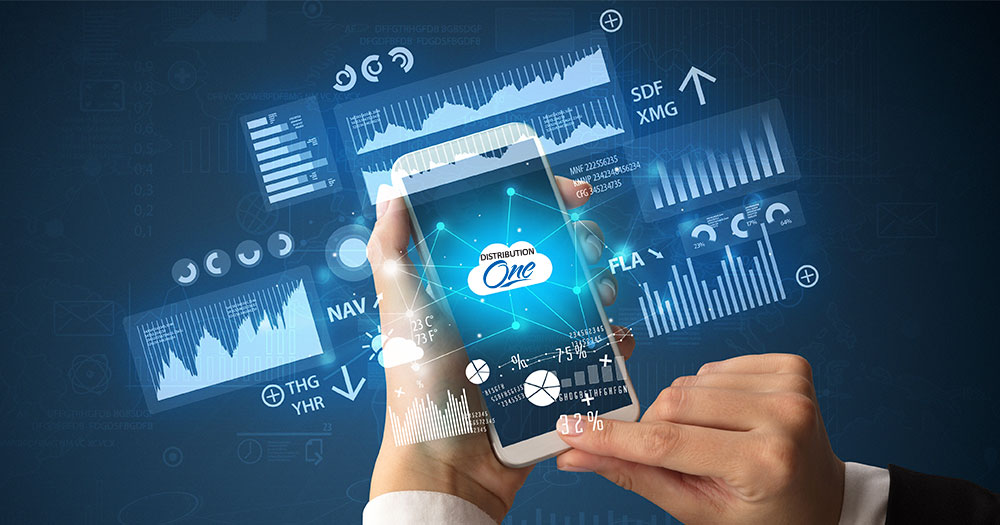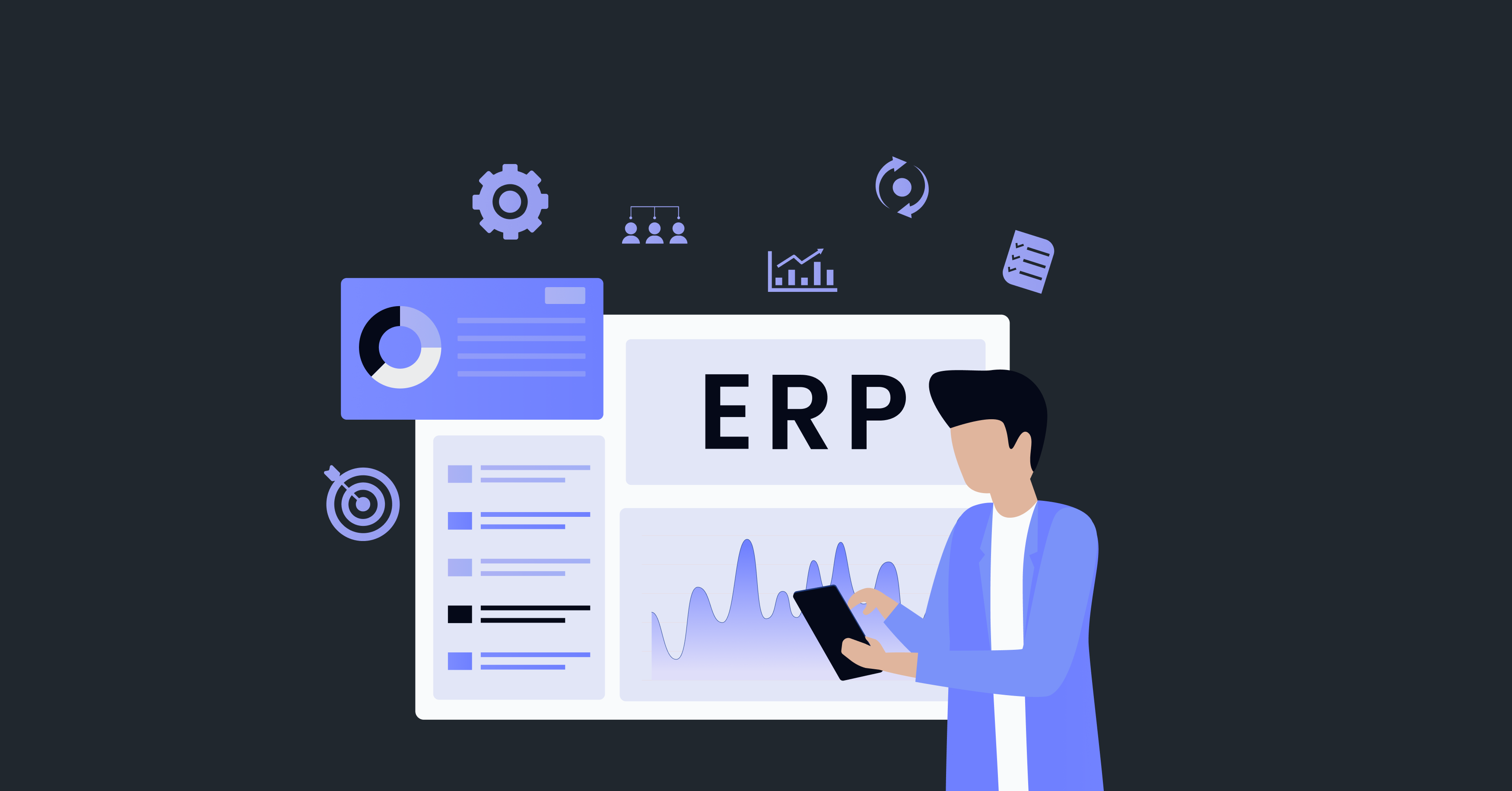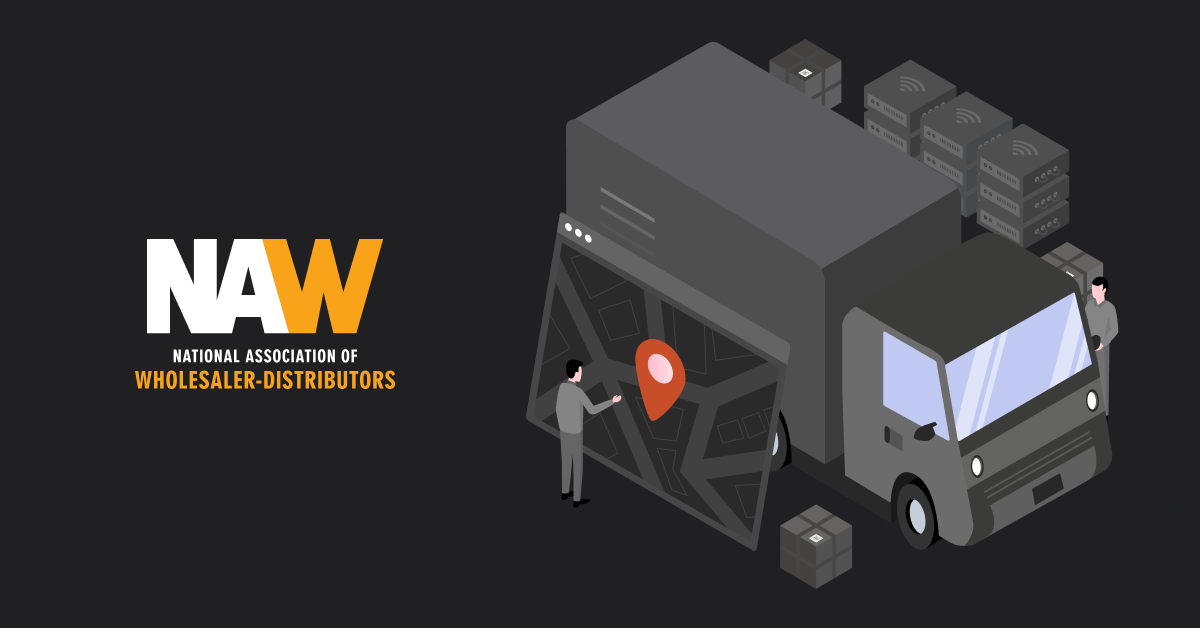Are you a wholesaler, retailer or an established brand?
Enterprise Resource Planning (ERP) systems have been around since the 1990s, helping you to automate all your back-office functions. ERP’s are evaluated on several major factors, including Merchandising, Customer Experience, Product Information, Supply Chain Management, and Flexibility. The combination of different modules to manage these back-office tasks includes – Sales and Marketing, Inventory Management, Finance and Accounting, Customer Relationship Management (CRM), Supply Chain Management (SCM), Human Resource Management, Operations, Engineering/Production Management, Purchase, Warehouse Management, and more.
Why ERP is important for your business?
 ERP is the base for any business. There is a huge amount of time and money involved in the ERP implementation, so you will have to do a lot of research prior to beginning the process. For most of you who ask, why do you really need an ERP solution, it is because of its ability to boost your customer engagement and streamline the manufacturing and operating procedures. Unlike other software, ERP implementation and management is never going to be a one-time process, it’s an ongoing continuous iteration that helps your business to stay on top of the trends. The “E” in the ERP denotes Enterprise – but that doesn’t mean you can ignore it if you’re a smaller company. The mid-size and high-growth companies are now rapidly adapting to the latest ERP systems.
ERP is the base for any business. There is a huge amount of time and money involved in the ERP implementation, so you will have to do a lot of research prior to beginning the process. For most of you who ask, why do you really need an ERP solution, it is because of its ability to boost your customer engagement and streamline the manufacturing and operating procedures. Unlike other software, ERP implementation and management is never going to be a one-time process, it’s an ongoing continuous iteration that helps your business to stay on top of the trends. The “E” in the ERP denotes Enterprise – but that doesn’t mean you can ignore it if you’re a smaller company. The mid-size and high-growth companies are now rapidly adapting to the latest ERP systems.
The Business Value and Benefits of ERP
- Global real-time business intelligence data that helps companies to address concerns proactively across the enterprise.
- Improves financial compliance by offering maximum business visibility and predicting and preventing the risk.
- Automates your core business operations order fulfillment, etc. and provides accelerated reporting.
- Better insights and enhanced customer support by keeping a single source of truth for billing.
- Higher productivity and better insights.
- Because of the integrated ERP applications, your IT is now simplified.
Signs that you’re ready for ERP implementation
 Now that you’ve learned all about the importance of ERP, you might ask, “how do I know if I really need an ERP solution?” If you’re one of those businesses that use standalone tools like Excel sheets or QuickBooks to manage your processes, below are some of the signs that will give you an idea of how you’ve outgrown this lately and why it is the right time for you to make that switch.
Now that you’ve learned all about the importance of ERP, you might ask, “how do I know if I really need an ERP solution?” If you’re one of those businesses that use standalone tools like Excel sheets or QuickBooks to manage your processes, below are some of the signs that will give you an idea of how you’ve outgrown this lately and why it is the right time for you to make that switch.
-
- Do you spend more than an average amount of time on your day-to-day activities?
- Are you able to keep track of your revenue and product returns?
- Are you good at these processes? Keeping track of the costs, inventory management, and customer satisfaction, etc.
- Does your application information flow seamlessly across different systems?
- Does each of your different departments follow their own applications, and do you seem to have more manual processes?
- Do you have the ability to spend time pursuing new opportunities and ventures?
- Does your current system have the ability to handle advanced machine learning and predictive analytics?
If the answer to most of these questions is “No” – you need to seriously consider an ERP system right now. The enterprise resource planning software is designed to address all of these challenges.
What is ERP implementation?
ERP implementation involved the ERP system software installation and migrating all your financial data to a new improved system and configuring the business processes. Both choosing an ERP system and the right implementation partner is critical for the success of your company.
ERP implementation phases
Below are the ERP implementation steps and phases you should follow.
-
- Define the scope – Discovery, and planning
- Design, and Strategise
- Development
- Stabilize and Testing
- Deployment – Go Live
- Post-go-live – Ongoing monthly maintenance
ERP for businesses – what are the options?
First thing first – ERP isn’t just meant for enterprises, and it is available for companies of all sizes – Small, Medium, and Enterprise. Starting from industry, business-specific functionalities, there are huge options available in the market now. Based on the number of employees and functionalities, you can choose what’s best for your business.
Also, there are three types of ERP implementations to choose from – Cloud ERP, On-Premise ERP, and Hybrid ERP.
The definitive guide to ERP selection and implementation
 So, who are the top ERP vendors? ERP selection is purely based on the factors you consider. Gartner’s annual market share states that the ERP market has had an annual growth of 10% to become a $35 billion market in 2018, and puts SAP, Oracle, Sage, Microsoft, Netsuite and Epicor among the top vendors.
So, who are the top ERP vendors? ERP selection is purely based on the factors you consider. Gartner’s annual market share states that the ERP market has had an annual growth of 10% to become a $35 billion market in 2018, and puts SAP, Oracle, Sage, Microsoft, Netsuite and Epicor among the top vendors.
Microsoft Dynamics 365

Source: dynamics.microsoft.com
Dynamics AX has been rebranded as Dynamics 365 for finance and operations, and it is available in the cloud, on-premises, and for hybrid deployments. Dynamics offers industry-specific capabilities for manufacturers and distributors, retailers, service industries and public sectors, and it encompasses functions from financial and human resources to operations management.
The latest version offers integration with-
- Microsoft Office
- Retail capabilities – Omnichannel, customer wish lists, assisted sales applications for smartphones, and the ability to handle the entire transaction single-handedly.
- Supply chain capabilities – Warehouse & Transportation management, demand forecasting, and eProcurement.
The custom engagement plan starts from $115 per user per month and goes up to $210 per user per month for Dynamics 365. You can learn more about the pricing plans here.
Oracle

Source: cloud.oracle.com
Oracle ERP is a cloud-hosted software that offers an end-to-end solution designed for businesses of all sizes. Created with scalability, it helps you to automate your business processes, procurement, reporting, financials, compliance, risk management, and more.
Oracle ERP feature lists:
-
- Financial planning and analysis
- Accounting
- Order management
- Enterprise performance management
- Risk management
- Revenue recognition
- Compliance and governance
- Procurement
- Inventory and supply chain
- Financial close
- Project planning and execution
- Product lifecycle
The Oracle ERP cloud comes with a simple enterprise pricing structure. An advanced financial controls plan is priced at $80/user/month, advanced access controls at $150/user/month, and financial reporting compliance at $175/user/month. If you’re looking for an Oracle ERP cloud comparison with Workday and SAP S/4 HANA Public, check out these features.
SAP

Source: sap.com/products/erp
With a customer base of 172,000+ businesses worldwide, SAP ERP is practically a one size fits all solution for businesses of all types, and you would never outgrow it. It offers supply chain, product lifecycle, financial and customer relationship management solutions all in one. Like Microsoft Dynamics, the product can be deployed via on-prem, cloud or on a hybrid model. SAP typically helps to manage your whole organization with an extensive network of partners who handle the integration and customization offerings. Eventually, you just have to pay for modules you need, the functionalities/or users can be added as you grow.
SAP helps streamline your processes across procurement, manufacturing, service, sales, finance, HR and the product capabilities are – Procure-to-pay, Plan-to-product, Order-to-cash, Request-to-service, Core HR services, and Core finance capabilities. The SAP B1 ERP pricing ranges from $25k to $250k and the all-in-one ranges from $120k to $2M.
Cost and Timeline to Implement Microsoft Dynamics, Oracle, and SAP
When it comes to the implementation timeline, SAP takes close to twenty months, whereas Microsoft Dynamics and Oracle each take two years. Cost-wise, SAP has an average cost of $2.1 million, whereas Oracle costs $2.3 million, and Microsoft Dynamics is the least expensive of all with an average implementation cost of $1.5 million.
Epicor
Epicor has a couple of offerings – Epicor ERP, Epicor Prophet 21, and Epicor Eclipse. While Epicor ERP is focused on manufacturing, Prophet 21 is for distributors, and Eclipse is for electrical, plumbing, HVAC, and PVF distributors. With Epicor’s offerings, you can optimize and manage every part of your manufacturing and distribution business.
Epicor ERP features:
-
- Application programming interface
- Business intelligence and analytics
- Business intelligence and analytics
- Customer relationship management
- eCommerce solutions
- Enterprise content management
- Enterprise risk management
- Financial management
- Financial solutions
- Human capital management
- Job management
- Mobile showroom
- Mobility
- Planning and scheduling
- Product management
- Production management
- Project management
- Sales order management
- Service and asset management
- Service and maintenance
- Strategic pricing
- Supply chain management
- Supply chain management
- Wireless warehouse management
Epicor is cloud-ready, extensible, mobile solutions and IoT-enabled. With pricing that starts at $175 per user per month, Epicor and Epicor implementation offers flexible end-to-end solutions and modular architecture.
Distribution One
 Source: softwareadvice.com
Source: softwareadvice.com
As a company with its only focus on offering ERP solutions to Wholesalers and Distributors, they provide comprehensive cloud and on-prem software applications to automate processing and reduce costs. Distribution One’s ERP-ONE+ 64-bit turnkey system supplies all the functionalities required to automate distribution processes. It is a modern, high-powered ERP system designed to run on a windows server and uses the progress database. It supports multiple industries, including industrial supply, fasteners, HVAC, Food and Beverage, FMCG, Electrical, retail distributors. ERP-ONE+ is highly recommended if your revenue is over $5 million, have 11-250+ employees and are looking for at least 10+ system users. The broad set of functionality is interconnected in one system and it also offers supplementation integrations for your eCommerce, Amazon integration, and more. If you’re migrating from another system, Distribution One offers assistance in data migration.
ERP-ONE+ functionality and feature list:
-
- Dashboard + Data analytics
- Sales order entry
- Invoicing and billing
- CRM – Customer relationship management
- Cash management and accounts receivable
- Wireless warehouse +
- Inventory and warehouse management
- Inventory replenishment
- Purchasing
- Item sales and contract pricing
- Vendor and accounts payable
- General ledger
- Sales analysis
- Interactive management reporting
- Document management
- EDI – Electronic data interchange
- Kitting/Assembly
Oracle Netsuite
 Source: oracle.netsuite.com
Source: oracle.netsuite.com
Made for high growth and mid-sized businesses, Netsuite is the world’s leading cloud-based ERP and business management software suite that helps automate operations and improves real-time visibility across the company. Used by more than 40,000 organizations across 60+ countries, Netsuite is the world’s most deployed cloud ERP solution. From financial management capabilities to revenue management and billing solutions, inventory, supply chain, and warehouse management solutions, Netsuite empowers businesses of all sizes.
Netsuite features summary:
- Financial management
- Finance and accounting
- Billing
- Revenue recognition
- Financial planning and reporting
- Global accounting
- Governance, risk, and compliance
- Order Management
- Pricing and promotions
- Sales order and returns management
- Production management
- Product data management
- Work order management
- Planning and scheduling
- Quality assurance
- MES
- Supply chain management
- Planning
- Execution
- Collaboration and support
- Warehouse and order fulfillment
- Inbound and outbound logistics
- Inventory management
- Warehouse management system
- Procurement
- Source, purchase, and pay
- Human capital management
- Core HR functionality
- Payroll
- Employee center
- Analytics
Netsuite pricing starts from $999/mo with an access cost of $99/user per month.
DDI Inform
DDI systems, Inform ERP, is a distribution management system that combines eCommerce, reporting, and CRM in one place for wholesale distributors and showrooms. With an option for both on-prem and cloud, Inform is typically suitable for a single location and multi-division organizations. It helps the users manage day-to-day operations with customer engagement. Additionally, they offer feature sets for janitorial and sanitation, paper and packaging, electrical, plumbing, HVAC, showroom, fluid power, restaurant, and industrial suppliers.
https://www.youtube.com/watch?v=YM-Npiaq1Mw
DDI system features:
- Analytics and reporting
- Embedded CRM
- Financial management
- Sales forecasting
- Inventory management
- Shipping and returns management
- Order fulfillment
- Point of sale
- Market-specific pricing
- Warehouse logistics
- Kits and assemblies fabrication
- Advanced demand management
- Customer engagement tools
- Warranty and rebate tracking
- Mobility and eCommerce
- Multi-dimensional pricing
Once you’re ready which ERP to go with, make sure you’ve taken the utmost care during the migration and deployment phase. These are the important phases to consider for a successful ERP implementation.
Costs Involved
A typical ERP implementation can cost you anywhere between $100,000 to $1 million if you’re a small to mid-sized business. For large scale enterprises, the cost can go up until $10 million.
Conclusion
There are many ERP implementation consultants available in the market, based on the resources and the complexity of the project you can hire one. Ultimately, ERP implementation is a lengthy process to handle for any organization. With the right strategy in place, ERP will help you to streamline your business functions and boost productivity in the long-term. Now that you’re here if you’re wondering how to integrate your ERP with other applications, check out our article a complete overview of the ERP Integration.
References:
- https://www.netsuite.com/portal/resource/articles/erp/what-is-erp.shtml
- https://www.sap.com/products/what-is-erp.html
- http://www.enterpriseappstoday.com/erp/erp-buying-guide-top-tier-vendors.html
- https://reviews.financesonline.com/p/oracle-erp-cloud/
- https://reviews.financesonline.com/p/sap-erp/
- https://www.softwareadvice.com/distribution/distribution-one-v2-profile/
- https://www.getapp.com/operations-management-software/a/the-1-cloud-business-management-suite/
- https://www.betterbuys.com/erp/reviews/netsuite-erp/
Contents




